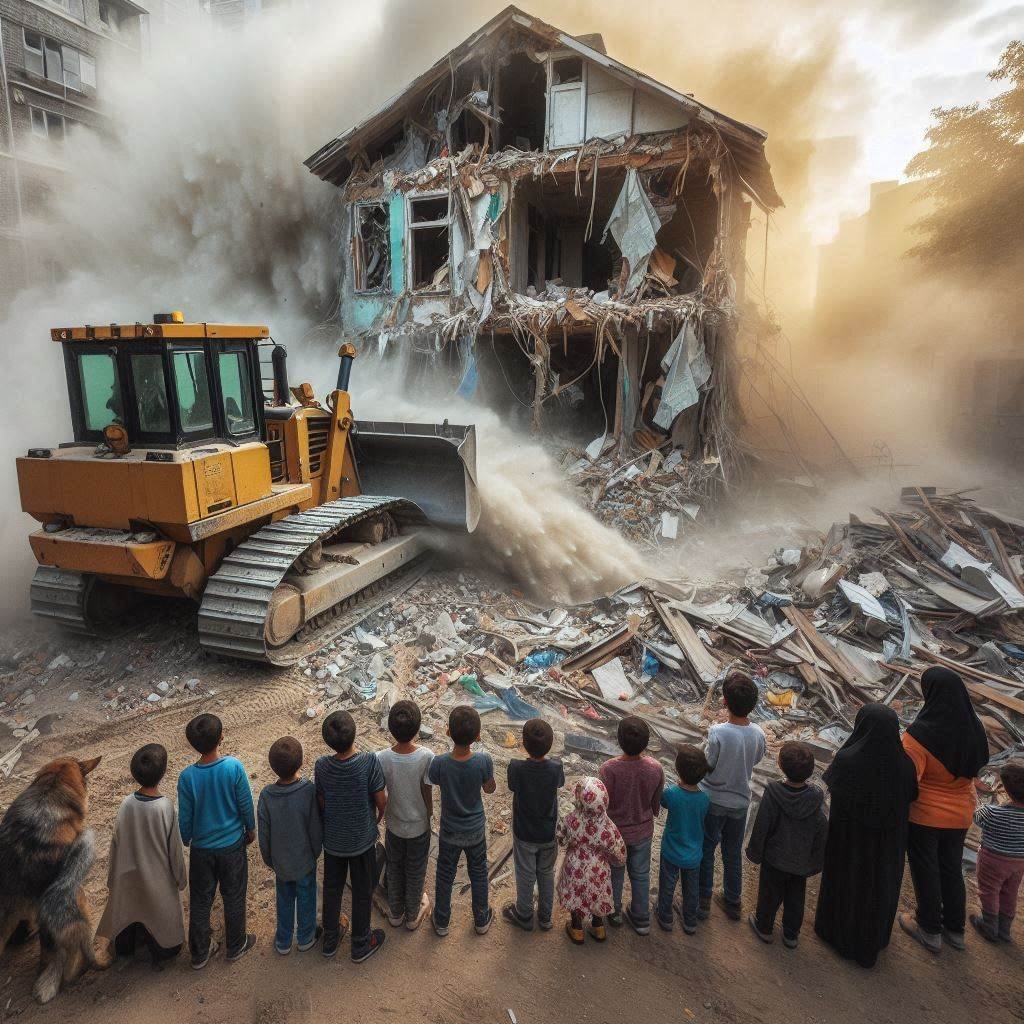

The term “Bulldozer Justice” has emerged as a potent symbol of swift punitive action in India, sparking intense debate across the nation. This practice, primarily involving the demolition of alleged illegal constructions by state authorities, is often linked to individuals accused of crimes or involved in protests. While it projects an image of decisive governance, it also raises significant concerns about legality, morality, and the implications for the rule of law.
At its core, “Bulldozer Justice” is seen as a response to the growing public frustration with the slow judicial process. The dramatic use of bulldozers to demolish illegal structures serves as a visible reminder of state power, appealing to those who favour a no-nonsense approach towards lawbreakers and dissenters. However, this spectacle of “instant justice” risks devolving into state-sponsored vigilantism, bypassing due process and legal accountability.
The primary concern arises when these demolitions are perceived as arbitrary or selective, targeting specific communities or individuals associated with protests, activism, or political dissent. This form of extra-legal retribution circumvents the judicial process, replacing trials and investigations with a bulldozer. In a constitutional democracy, such actions could undermine fundamental rights like property ownership, the right to a fair trial, and protection against discrimination.
Recent deliberations in the Supreme Court regarding “Bulldozer Justice” highlight a growing awareness of these concerns. The court has reserved its judgment on formulating national-level guidelines to regulate demolition drives by state authorities. At the heart of this debate lies the need to balance the state’s right to enforce laws and remove illegal structures against the individual’s right to due process and fair treatment.
The need for guidelines is essential in creating a framework that can differentiate between legitimate state actions and politically motivated retribution. Clear-cut protocols and procedures, overseen by the judiciary or other independent bodies, can ensure that demolition drives are not arbitrary but follow a transparent and accountable process. This would include prior notices, hearings, and time for individuals to present their case before any demolition is carried out. Moreover, ensuring that demolitions are not linked directly to criminal allegations without due trial is vital in upholding the principle that every citizen is innocent until proven guilty.
“Bulldozer Justice” brings forth the classic tension between maintaining law and order and preserving individual liberties. While illegal structures must be dealt with, the process should be executed in a manner that respects constitutional rights and does not devolve into a form of collective punishment. Vigilante-like actions, even when enacted by the state, cannot substitute for a legal framework where fairness and accountability are paramount.
India’s legal system, though slow and at times inefficient, remains the bedrock of its democratic values. The solution lies not in bulldozing these values, but in strengthening the legal machinery, ensuring that laws are enforced fairly and expeditiously. Only through this balance can we prevent the descent into state-sponsored vigilantism while preserving the rule of law.